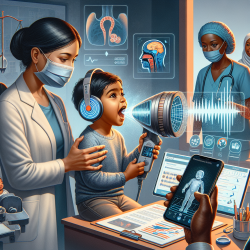The 5th Annual Psyche Awards have once again highlighted the significant contributions made in the field of mental health through scholarly articles. These awards recognize excellence in integrating science and practice within psychotherapy, offering valuable insights for practitioners seeking to enhance their skills. This blog post delves into key findings from the awards and how they can be implemented to improve therapeutic practices.
The Importance of Integrating Science and Practice
The Psyche Awards emphasize the importance of the scientist-practitioner model, which advocates for a harmonious blend of research and clinical practice. This integration is crucial for advancing mental health care, as it ensures that therapeutic approaches are grounded in empirical evidence while remaining relevant to real-world applications.
Practitioners can benefit from this model by staying informed about the latest research findings and considering how these insights can be applied to their clinical work. By doing so, they not only enhance their own practice but also contribute to the broader field of psychotherapy.
Key Research Highlights
The awards recognized several groundbreaking articles across various categories, each offering unique contributions to the field:
- Assessment and Treatment of Depression: The winning article in this category provided a comprehensive review of psychological treatments for depression, highlighting the effectiveness of cognitive restructuring and behavioral activation. Practitioners can use these insights to tailor interventions based on individual client needs.
- Technology-Assisted Psychotherapy: The innovative use of virtual reality in exposure therapy was celebrated for its potential to create immersive therapeutic experiences. This approach can be particularly beneficial for clients who may not have access to traditional face-to-face therapy.
- Understanding Suicide Risk: A critical review of psychiatric hospitalization for suicidal clients challenged conventional practices, urging practitioners to consider alternative interventions that may better support vulnerable individuals.
Implementing Research Findings in Practice
To effectively integrate these research findings into practice, practitioners should consider the following strategies:
- Continuous Learning: Engage with current research through journals, webinars, and conferences. This ongoing education helps practitioners stay abreast of new developments and refine their therapeutic techniques.
- Client-Centered Approaches: Adapt interventions based on client preferences and contexts. For example, when choosing between cognitive restructuring or behavioral activation for depression treatment, consider what aligns best with the client's goals and circumstances.
- Embrace Technology: Explore technology-assisted therapies that can enhance client engagement and accessibility. Virtual reality and teletherapy are promising tools that can expand reach and effectiveness.
- Collaborative Practice: Work alongside other professionals to share insights and develop comprehensive treatment plans that incorporate diverse perspectives and expertise.
The Path Forward
The 5th Annual Psyche Awards serve as a reminder of the dynamic nature of psychotherapy. As new research emerges, practitioners have an opportunity—and a responsibility—to integrate these findings into their practice. By doing so, they not only improve their own skills but also contribute to advancing mental health care as a whole.
For those interested in delving deeper into these award-winning articles and furthering their understanding of contemporary psychotherapy practices, I encourage you to read the original research paper: The 5th Annual psyche awards: celebrating excellence in scholarship.










